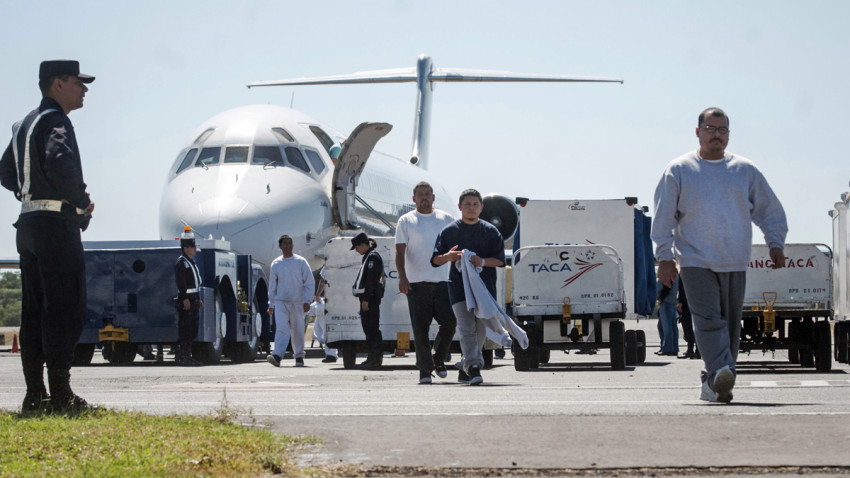At least 138 Salvadorans have been killed in the past seven years after being deported by U.S. authorities, a rights group said Wednesday in a report that highlighted the risk of returning migrants to the Central American nation.
A majority of the Salvadorans — 109 — were sent home during the Obama administration, according to Alison Leal Parker, managing director of the U.S. program of Human Rights Watch.
But under President Trump, the New York-based organization notes, it has become more difficult to receive asylum. Human Rights Watch predicts the situation “will only worsen.”
“U.S. authorities knew or should have known they were going to return these people to harm,” Parker told The Washington Post. “Therefore, they should not have done it.”
Human Rights Watch also identified 70 cases of deportees who disappeared after their return or suffered sexual violence, torture or other abuse, often by gangs.
News organizations including The Post and the New Yorker have published accounts of migrants who were deported from the United States and killed after their return home. But the Human Rights Watch report appears to be the most extensive investigation into the phenomenon to date and reveals the most cases.
The Salvadorans included in the report were deported for a variety of reasons, including losing asylum cases or committing crimes. Human Rights Watch did not break down the cases by reason for deportation.
Under U.S. law, foreigners who fear persecution or torture can ask that their deportation be suspended.
The organization called the immigration system “harsh and punitive — plagued with court backlogs, lack of access to effective legal advice and assistance, prolonged and inhumane detention, and increasingly restrictive legal definitions of who merits protection.”
Bryan D. Cox, press secretary for U.S. Immigration and Customs Enforcement, wrote in an email that “removals conducted by ICE are done in full accordance with federal law as passed by Congress after an individual receives all appropriate legal process before the courts.” He added that “as the [Human Rights Watch] document relies upon anonymous sources, it’s impossible to verify or address claims.”
Many of those killed after their return to El Salvador were targeted by gangs, which control huge swaths of the country.
One 24-year-old man was slain in 2013 in his family’s home on the outskirts of San Salvador, in a neighborhood controlled by the MS-13 gang, a cousin said. She told The Post that gang members were suspicious of the tattoos he’d gotten while living in the United States.
“If you get tattoos, it’s a death sentence,” said the woman, who spoke on the condition of anonymity because she feared for her family’s security. “Only those who are gang members usually get tattoos.”
But her cousin’s tattoos had nothing to do with gang membership, she said. One simply said “El Salvador.” The young man had moved to the United States at age 13 and was deported nine years later, she said.
The 138 cases included Salvadorans who had fled their homeland trying to escape the grip of gangs, as well as police who had been hounded by gangs and sought shelter in the United States. The majority were slain within a year of their return.
Human Rights Watch said the actual number of those killed was probably higher. It tracked the cases through press accounts, court files and interviews with officials, community members and relatives.
The number of Salvadorans seeking asylum in the United States skyrocketed as violence surged in their country — from about 5,600 in 2012 to more than 60,000 in 2017.
Homicides have declined sharply in El Salvador since 2015, plunging last year to 2,390 — or about 36 per 100,000 people.
But that’s still about seven times the U.S. rate, and thousands more people disappeared in 2019. Gangs and security forces both kill their victims secretly and hide the bodies to avoid prosecution.
There are an estimated 1.2 million Salvadorans without American citizenship living in the United States. Nearly 300,000 are permanent residents. An additional 195,000 have temporary protected status. From 2014 to 2018, about 18 percent of Salvadoran applicants were granted asylum. (https://www.washingtonpost.com/world/the_americas/rights-group-138-salvadorans-deported-by-the-us-were-killed-back-home/2020/02/04/bdf134ee-46d2-11ea-91ab-ce439aa5c7c1_story.html)






































